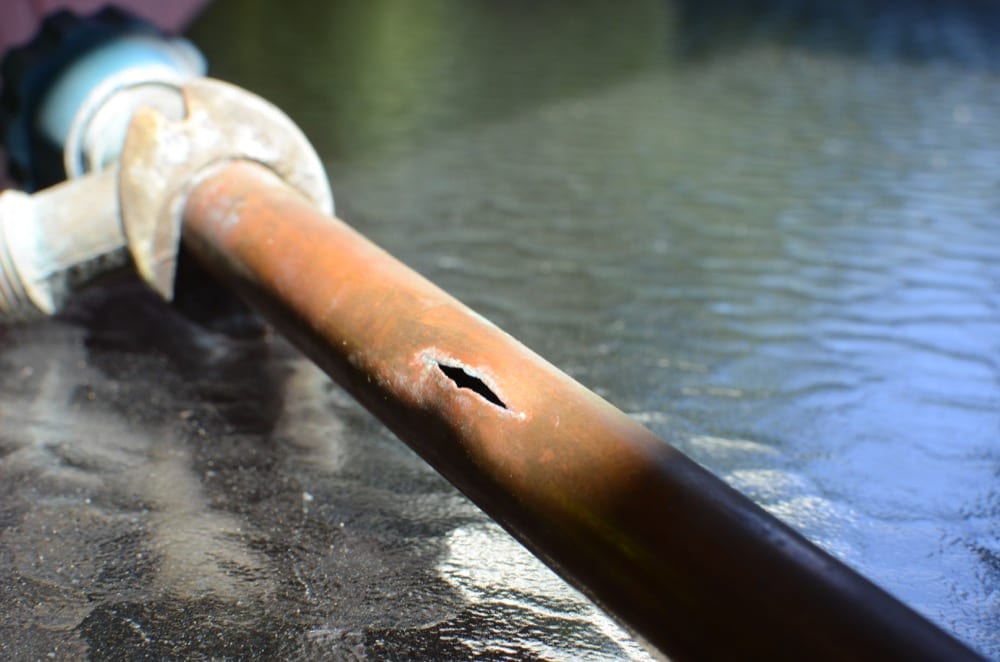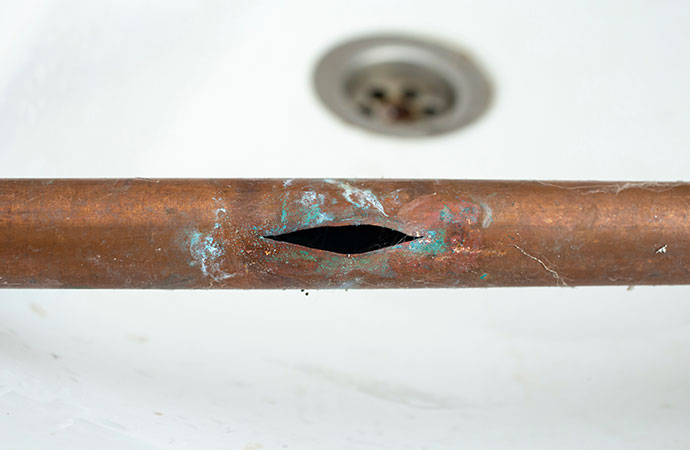Responding To Burst Pipe Water Damage - Proven Methods
Responding To Burst Pipe Water Damage - Proven Methods
Blog Article
They are making a number of good points regarding Do s And Don ts For Homeowners Managing With Water Damage in general in this great article following next.

What should you do if a water pipeline ruptureds in your residence? The longer you wait, the more serious the damage that can take place to your home. For these reasons, you require to find out just how to act in the occasion of a ruptured water pipeline.
Shut down the Key Waterline Shutoff
Look for the neighborhood shut-off valve to turn off the water in one specific location just. If you don't know where the localized shut-off shutoff is, go for the primary water line shutoff and also transform it off. Normally, the main shutoff is found outside the residence next to the water meter.
Call Water Damage Restoration Pros for Assistance
After shutting the water source, call the professionals for help. Since the pipelines needed to be taken care of and there is a requirement to resolve the other damages to your building, this situation is not something you can do some DIY. Seek assistance from a trusted firm providing 24/7 emergency solutions if you can not cope. With their professional aid, you can avoid a lot bigger water damage including deformed baseboards, loosened tiles, or harmed structures. Don't take this trouble lightly and look for specialist guidance for your full satisfaction and a reliable solution.
Document the Damage For Insurance
While you're waiting for the pros to get here, get some documents of the damage caused by the errant pipe. Do close-up shots of the harmed areas and also valuables.
Recover Things That Can Be Saved
Take a look at the damaged products and also take out the most essential ones from the pile once you're done taking photos. Dry them off in a dry/warm area away from the damaged location and also try to protect them as high as you can. Drag as much dampness as you can to the material so it can begin to dry out.
Begin the Drying Process
You need to start the drying out process as soon as possible. Thankfully, the water from your waterlines is currently clean so you do not need to bother with sewer water. The flowing water may have disrupted the dust and particles in your floorboards and also carpets. In this situation, put some handwear covers on and begin some damage control. Use pails to dump out the water. Remove as much water as you can from the surface areas with old towels. Activate an electrical fan or open your windows to advertise air blood circulation. These actions will accelerate to dry and also deter mold and mildew and mildew development.
Specialists are the only individuals certified to evaluate properly and deal with the burs pipes and subsequent damage. As always, pipelines do not simply instantly break out of heaven. They generally offer quiet warnings like bubbling paint, water stains. Weird sounds in the plumbing, caving ceiling, stuffy smell, or peeling wallpaper. Make note of these indicators as well as do some preventive measures so you can nip any kind of concerns in the bud.
What should you do if a water pipeline ruptureds in your house? For these factors, you require to learn exactly how to act in the occasion of a ruptured water pipe. After shutting the water resource, call the specialists for help. With their professional help, you can prevent much larger water damage including warped walls, loosened tiles, or harmed structures. Fortunately, the water from your waterlines is currently tidy so you don't have to worry about drain water.
BROKEN WATER PIPES: COST TO REPLACE & WAYS TO FIX A PIPE
CAUSES OF A BROKEN WATER PIPE
A water pipe can break for several reasons depending on the environment you live in, type of pipe, and circumstances.
The most common cause of broken pipes is freezing. If you live in a colder climate, this could happen. When water freezes it increases in volume by 9% and the pressure in the pipes can go from 40 psi to 40,000 psi. Clearly, this could be detrimental to the pipes. Water freezing causes quick expansion, which puts stress on the pipes and could lead them to crack or weaken. When water thaws, it will leak out the cracks. Other changes in water pressure can also cause breakage. Another common cause of broken water pipes is age.
Depending on the material, water pipes can last anywhere from 70-100 years. But the older they get, the more susceptible they are to weakening and corroding. Older pipes coming into contact with another material could speed up the corrosion process as well. PVC pipes can become brittle with age, while copper is prone to corrosion and stress over time. Something that could also potentially break water pipes is when they move. They may move from construction or the house settling. Moving can stress the fixed pipe which may lead to a leak or burst pipe.
HOW MUCH WATER COULD LEAK INTO YOUR HOUSE FROM A BROKEN PIPE?
The amount of water that leaks depend on how big the break in a pipe is. If it is just a minor crack, water will slowly leak out. This isn t as serious as a full broken pipe, but it can still cause significant damage to your home. Burst pipes can leak up to 10 gallons of water per minute. The amount of water leaked also depends on what appliance is involved. The water line to your refrigerator can leak to 1 gallon per minute depending on water pressure. One toilet supply line may leak 2-3 gallons a minute and a washing machine hose will leak up to 10-12 gallons per minute.
TURN THE WATER OFF
Doing this first is imperative; everything else can wait. You need to deactivate the water supply to stop the flow of water and prevent more water from leaking into your home. Shutting off the water could potentially save you thousands in water damage repairs. Locating the water shutoff valve depends on the climate you live in. For colder climates, the valves are usually inside, such as in the basement. For houses in milder weather, the shutoff valves will probably be outside either attached to an exterior wall or in an underground box with a removable lid.
OPEN A FAUCET
The next thing to do is to open a faucet or turn on a sink. This will relieve any remaining water pressure in the pipes and ensure a full-shut down.
GET RID OF THE WATER
The quicker you get rid of the water, the less water damage and mold there could be. Use a mop and a shop vacuum to help get clean up the water. Use towels to dry everything the best you can.
CUT AND REMOVE THE DAMAGED PIPE
Once you have shut off the water and drained the damaged water pipe, you can begin to fix the issue. Cut out the damaged section of the pipe with a pipe cutter, ensuring that you also cut one inch extra on each side of the damage. Once you get rid of the broken part of the pipe, you may begin repairs.
https://www.wmhendersoninc.com/blog/broken-water-pipes-cost-to-replace-ways-to-fix-a-pipe/

I ran across that article about Quick Tips To Help Deal With Water Damage while scouting around the internet. Do you know anybody else who is interested by the niche? Be sure promote it. I take joy in reading our article about Quick Tips To Help Deal With Water Damage.
Real results? Dial! Report this page